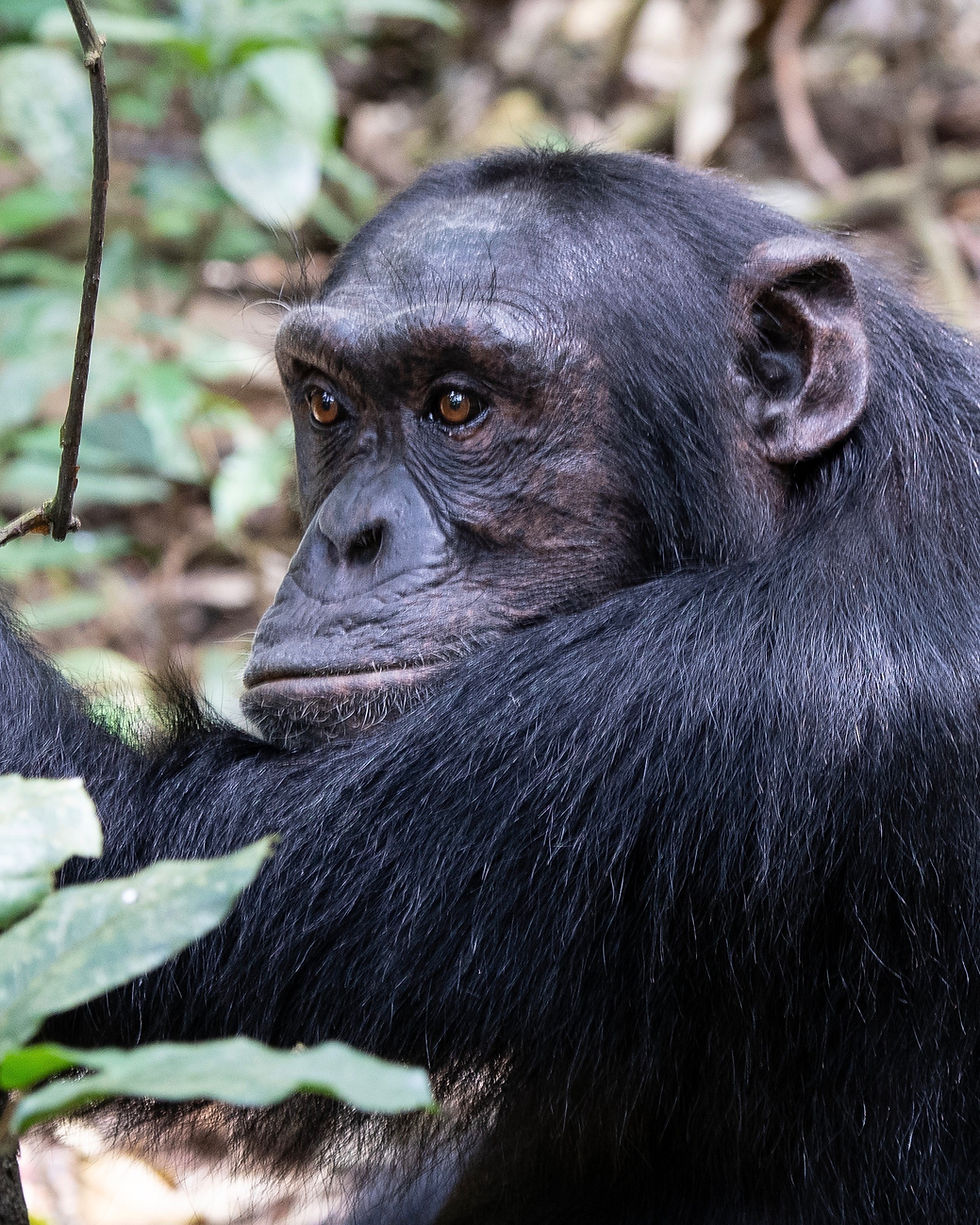The Chimpanzee ... Our Closest Non-Human Relative Could Really Use Our Help
- markcskilling
- Feb 16, 2023
- 1 min read
Updated: Feb 17, 2023

Chimpanzees are great apes found across central and West Africa. Along with bonobos, they are our closest living relatives, sharing 98.7 percent of our genetic blueprint. Some fun facts are that they grow to 4 to 5 feet in height and can weigh 70 to 130 pounds. The have a typical natural lifespan of 45 years. Chimpanzees are highly social. They live in communities of several dozen animals, led by an alpha male and his coalition of male allies. Research has shown that male and female chimps have individual personalities. Grooming is an important part of their social life, helping chimpanzees bond as they remove ticks and dirt from one another’s bodies.
Kibale National Park contains the largest population of chimpanzees in Uganda and one of the largest in Africa, making it one of the few remaining strongholds for chimpanzees in the wild. The main threats to chimpanzees in Kibale and elsewhere is poaching, which has increased in frequency alongside growth in local human populations. Habitat loss, pet trade, hunting for bushmeat and human disease have all played a role in Chimpanzee decline resulting in its status as an endangered species. There is also the problem in Kibale National Park that the Chimpanzees get caught in snares set by poachers to catch other wildlife so often that it is estimated that fully one-third of the chimpanzees within the park have snare-related injuries, some fatal.
Organizations that promote Chimpanzee conservation include: The World Wildlife Foundation (WWF); Project Chimps; Chimphaven; Wildlife Conservation Society (WCS); and African Wildlife Foundation (AWF).

















Comments